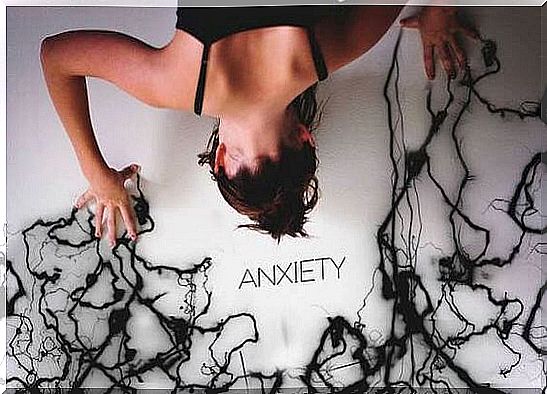The Most Common Types Of Anxiety: All Can Be Fought

Anxiety is one of the great evils of our time. In fact, there are multiple types of anxiety referenced, and increasingly extensive classifications continue to appear. It is not for less, if one takes into account that the times in which we live are sometimes too demanding and the balances, both our own and those we maintain with other people, are potentially dynamic.
Anxiety is one of the faces of fear. But unlike fear itself, here there is no specific stimulus that causes it. Fear is normal when you are faced with a specific threat and you perceive that your integrity may be in danger.
But anxiety is a form of fear that often does not have a defined cause, so it is not easy to intervene on the origin of that anxiety or on the factors that make it recurrent.
You identify that anxiety haunts you because you feel restless, insecure or worried about “something” imprecise or about something precise that you do not know how to face. As if you were inside a plane in free fall, even if you are actually sitting in your living room. You experience a tingling that does not leave you alone, that leads you to feel agitation, irritation, but you cannot identify why.
There are several types of frequent anxiety. Some prefer to call them simply “stress” or “worry”, but if you look closely they turn out to be very severe forms of anxiety. The good news is that any of those types of anxiety can be overcome. To achieve this, the first thing we are going to do is try to get to know them.
Types of anxiety: generalized anxiety and social anxiety

Generalized anxiety disorder is defined as a state of constant worry, for no specific reason for this happening. It should last longer than 6 months and, in general, it is accompanied by difficulty sleeping, irritability, trouble concentrating, and general fatigue.
Social anxiety, on the other hand, is a condition in which a person experiences fear or anguish in those situations in which they must interact socially. Simply put, they are afraid of contact with other people. Much of this anxiety is anticipatory, that is, it occurs before the dreaded social contact takes place.
Both conditions significantly deteriorate a person’s quality of life. They are states that do not heal on their own over time, since they tend to feed back with different avoidance behaviors. They are not bad times, but situations that require professional treatment.
In most cases, a short therapy is enough to bring emotions back under control. At other times, longer interventions are required, but the probability of overcoming these conditions, in any case, is very high.
Obsessive disorders and post-traumatic stress disorder

Obsessive disorders are of various types, but they all have in common the fact that there is a persistent and intrusive idea that causes fear or distress. Thus, as much as the person tries to get that idea out of his head, he does not succeed. These obsessions can invade the personality and produce a vital paralysis.
Post-traumatic stress is that state of anguish that occurs after living a traumatic experience. It manifests as restlessness, difficulty sleeping and, above all, with a recurring fantasy that what happened will happen again. It keeps the affected person in a state of alert and fuels insecurity and isolation.
In both cases, and depending on the severity of the symptoms, there are different ways to overcome the problem. The practices of some method of relaxation can contribute to diminish the anxiety and to increase the capacity of concentration.
If these methods are not effective, professional therapy is an excellent alternative, with a great chance of success.
Agoraphobia and hypochondria

Agoraphobia became one of the most common types of anxiety in our time. It is a diffuse and uncertain fear of all those situations in which there seems to be no escape, or in which there is no possibility of receiving help, if you suffer a panic attack.
The person thinks that they might have a panic attack and that in certain circumstances they might not be able to escape or get help. In a way, it is a form of fear of fear. Every day the number of consultations for agoraphobia is greater and those who suffer from it suffer a lot and feel great limitations to lead a normal life.
Something similar happens with hypochondriacs, who interpret any signal from their body in a catastrophic way. They suspect that they have serious illnesses and feel that their condition could get worse at any moment, without them being able to do something about it.
In both cases, some kind of relaxation practices are recommended. These help reduce or deactivate the escalation of anxiety and better identify the signals that our body sends us. They also generate greater self-control.
Regular physical exercise also helps in this regard. As in other cases, if this is not enough, the help of a professional will always be the most reliable alternative.
Images courtesy of Philipp Mackay









